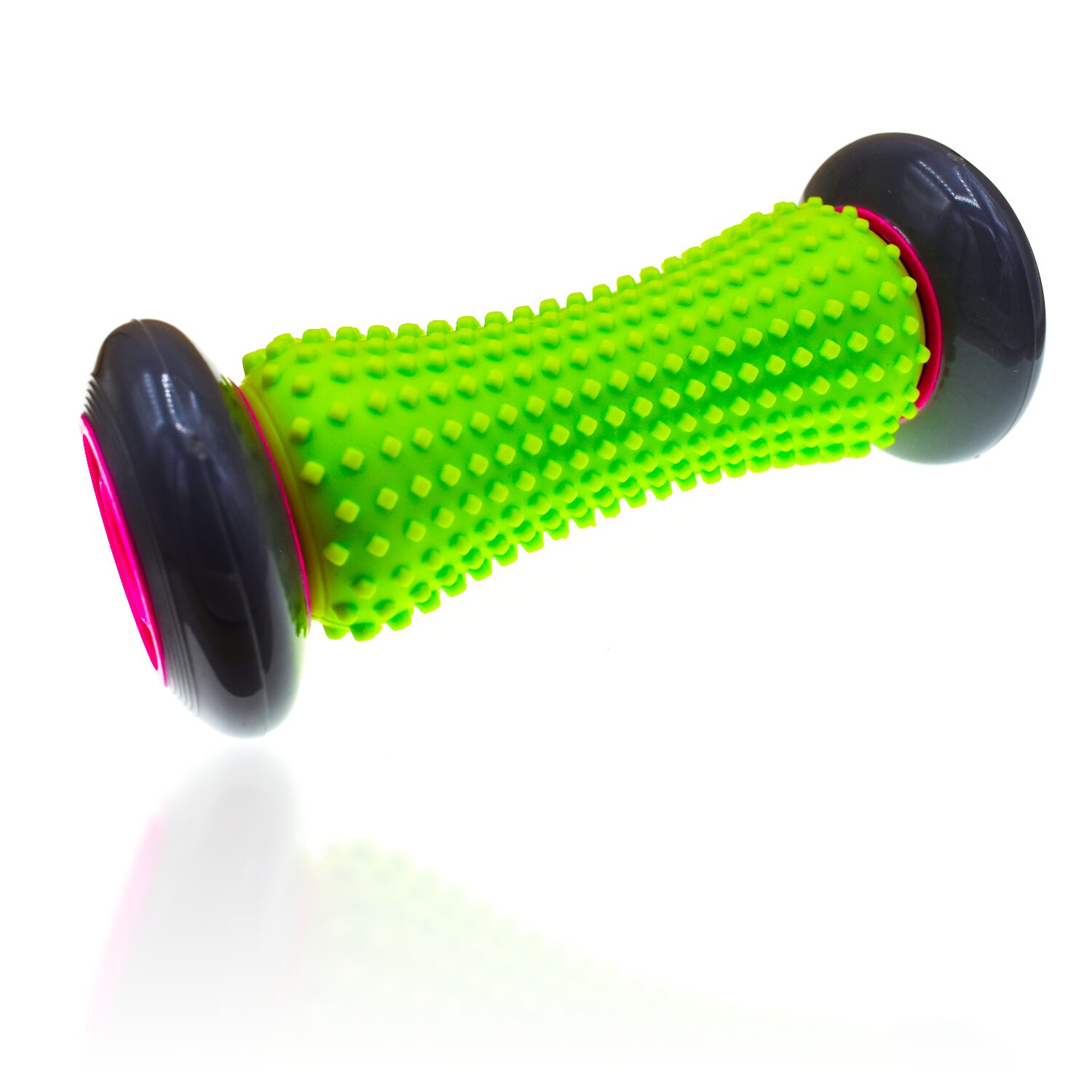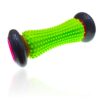No products in the cart.
Plantar Fasciitis Foot Massage Roller
£9.99inc VAT
- 1x Spikey Massage Foot roller for helping ease and speed up the recovery of Plantar fasciitis
- Helps reduce inflammation and swelling and provide fast pain relief for plantar fasciitis sufferers
- Recommended for easing and treating foot injuries and conditions including Plantar Fasciitis, Diabetic Neuropathy, Arthritis, Metatarsalgia(ball of foot pain), Myofascial Pain Syndrome, Achilles Tendinitis as well as general foot cramps, aches, pains and fatigue
- Features specially designed spikey reflexology nodes that stimulate blood flow to your feet specifically your plantar fascia ligament helping to reduce inflammation and swelling and provide fresh oxygenated blood to damaged tissue to speed up the natural healing process and get you back on your feet quicker
- Ideal for people who suffer from flat feet, fallen arches or high arches and are more susceptible to foot pain and injuries
- Can be used before and after running and exercise to help reduce tightness of the plantar fascia ligament one of the main causes of plantar fasciitis
- Ergonomically designed to fit underneath the arches of your feet to provide targeted trigger point release and deep tissue recovery
- Can also be used on other parts of your body such as your hands, forearms, shoulders, back, calves & hamstrings to release tight and knotted muscles, ease muscle spasms and relieve muscle aches and pains
- Includes a full 30 day money back guarantee
What is plantar fasciitis?
If you are suffering from a tight sharp pain in the arch or heel of your foot that feels worse in the mornings and gets better during the day you could be suffering from a common overuse injury known as Plantar fasciitis.
Plantar Fasciitis is triggered when excessive strain and pressure damages and inflames the plantar fascia ligament that stretches across the arch of your foot. You can damage your plantar fascia in a number of different ways the most common being biomechanical imbalances such as overpronation and supination that affect your gait and puts abnormal load on your feet which can over time can cause damage to your feet. If you have flat feet or high arches you are more likely to suffer from biomechanical imbalances and Plantar Fasciitis and other foot problems and injuries as a result.
How a foot roller can help ease your pain
Using a spikey foot roller is a great way to help ease your Plantar Fasciitis and speed up your recovery. Our specially designed Foot Roller for Plantar Fasciitis has a number of features that will help ease your pain and get you back on your feet quicker. Featuring spike reflexology nodes our foot roller will help massage and stimulate fresh oxygenated blood to your foot helping to soothe your pain, reduce inflammation and swelling and accelerate the natural healing process of your damaged plantar fascia ligament. This foot roller is ideal for using in the mornings when your plantar fascia ligament is at its tightest state. The rolling action will help to untighten your plantar fascia and Achilles tendon helping to protect you from pulling and straining the ligaments in your foot and reduce any tight pains that you might be having. You can also use this foot roller to help treat and ease other foot problems and conditions including Diabetic Neuropathy, Arthritis, Metatarsalgia (ball of foot pain), Myofascial Pain Syndrome, Achilles Tendinitis as well as general foot cramps, aches, pains and fatigue.
If you are suffering from Plantar Fasciitis, we also recommended checking out a pair of Arch support insoles or a Night splint. Wearing a pair of arch support insoles can help to keep strain and pressure off your feet and correct gait problems which maybe contributing to your injury. Wearing a night splint can also help by keeping your foot stretched and supported whilst you sleep at night to prevent tight pain in the morning when you wake up and improve your recovery.
Fast & Secure Checkout Through Paypal
Pay with Paypal the secure payment gateway that accepts all credit and debit cards. Paypal is free and secure and no credit or bank information is ever stored or shared with us.
Fast Dispatch
Enjoy your items soon with quick dispatch via Royal Mail First Class. Expect to have your items between 1-3 days for domestic orders. 7-10 Working days for international orders.
Return Policy – 30 Day Money Back Guarantee
We are so confident that you will just love our product that we offer a full 30 day money back guarantee. In the unlikely event, you are unhappy with your purchase you can simply return it within 30 days for a refund. Please contact us via the form on the contact us page to start your return.
To return an item please send it to: Nuova Health UK, 81 Highfield Lane, Waverley, Rotherham, S60 8AL. Please include a note with your order id so we know who to refund. Please retain your postage receipt as proof of postage. All that we ask is that the item is in the original packaging and unused.



Reviews
There are no reviews yet.